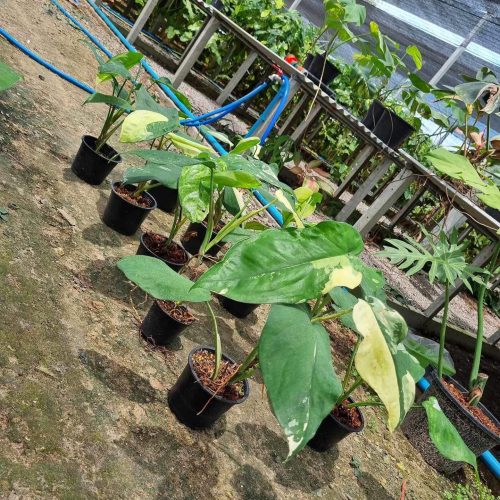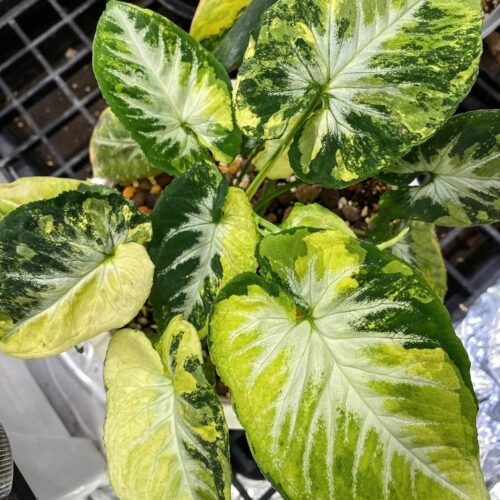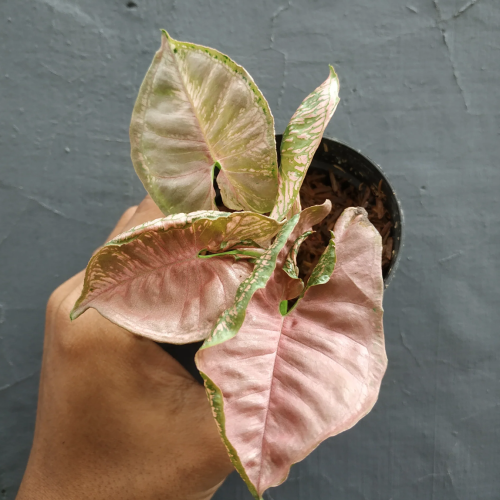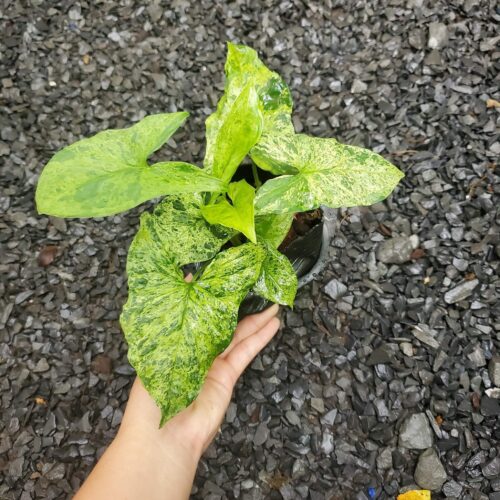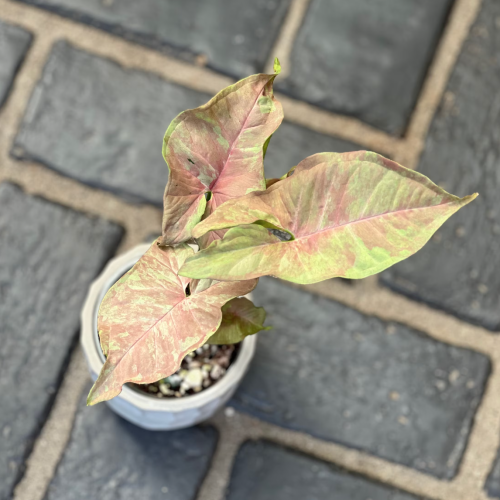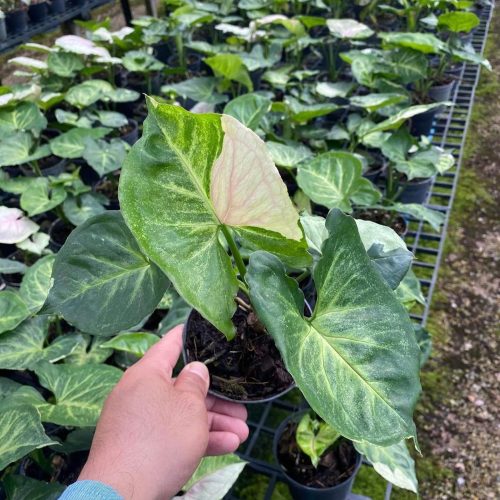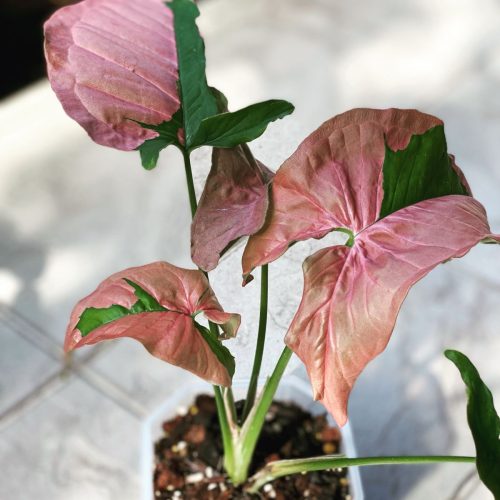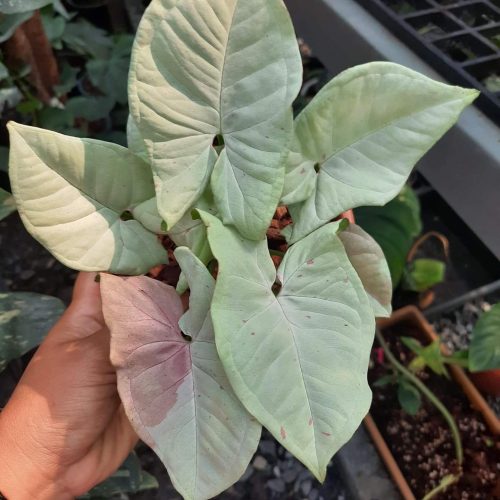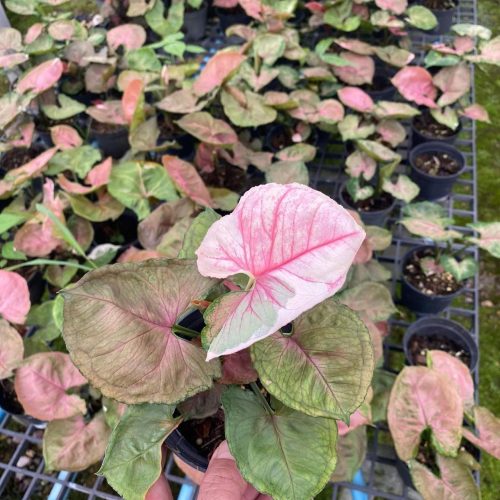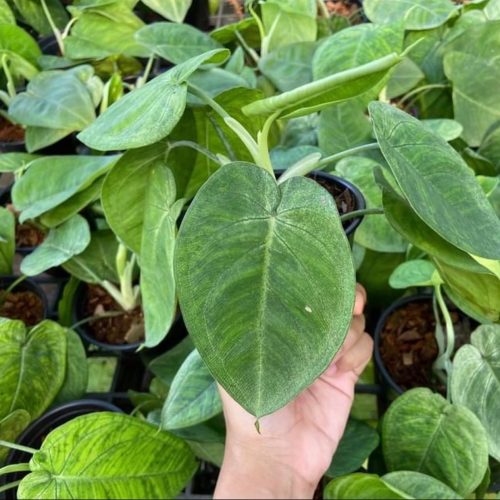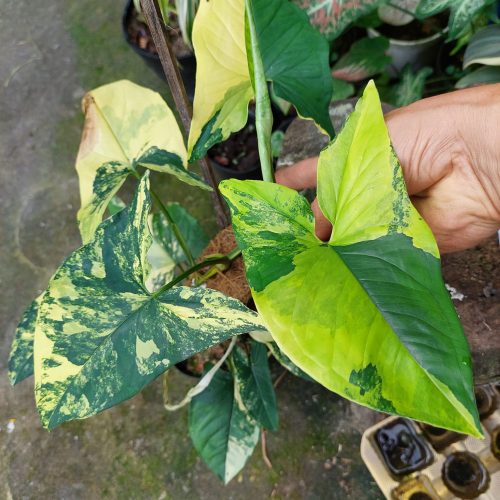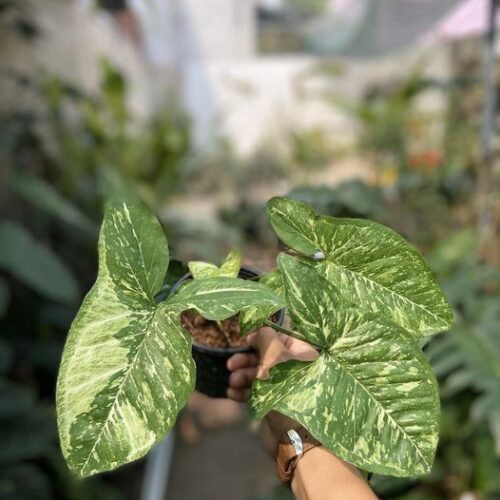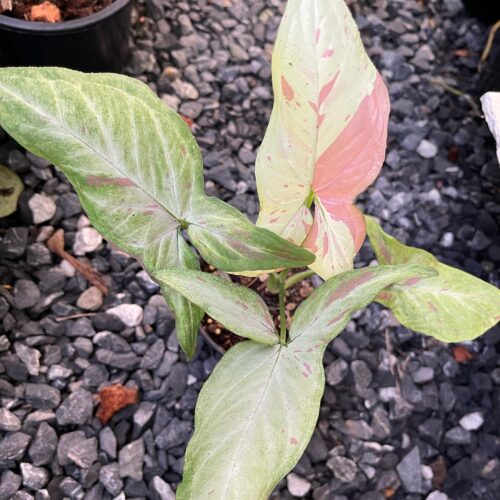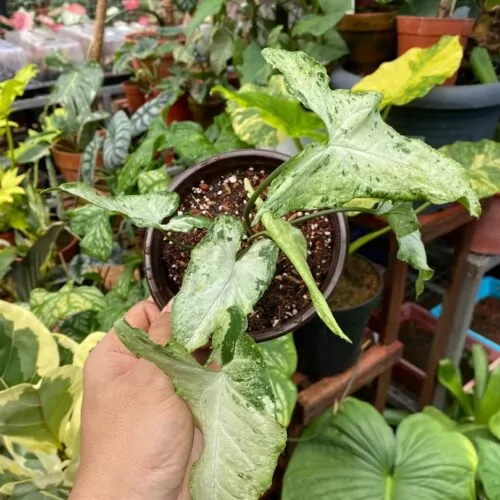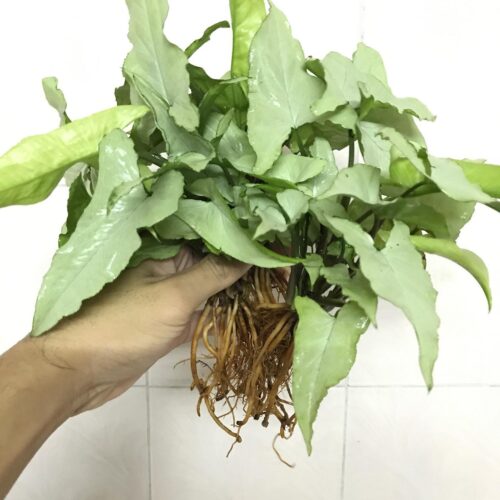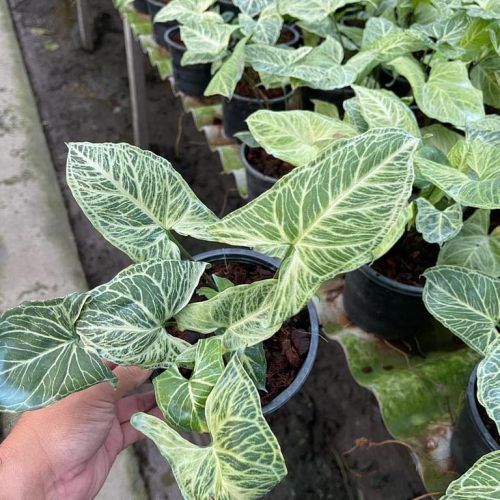The Syngonium Three Kings is a gorgeous and unique variety of syngonium plant. With its multicolored leaves in shades of green, pink and white, it makes a stunning houseplant and adds major visual interest to any space.
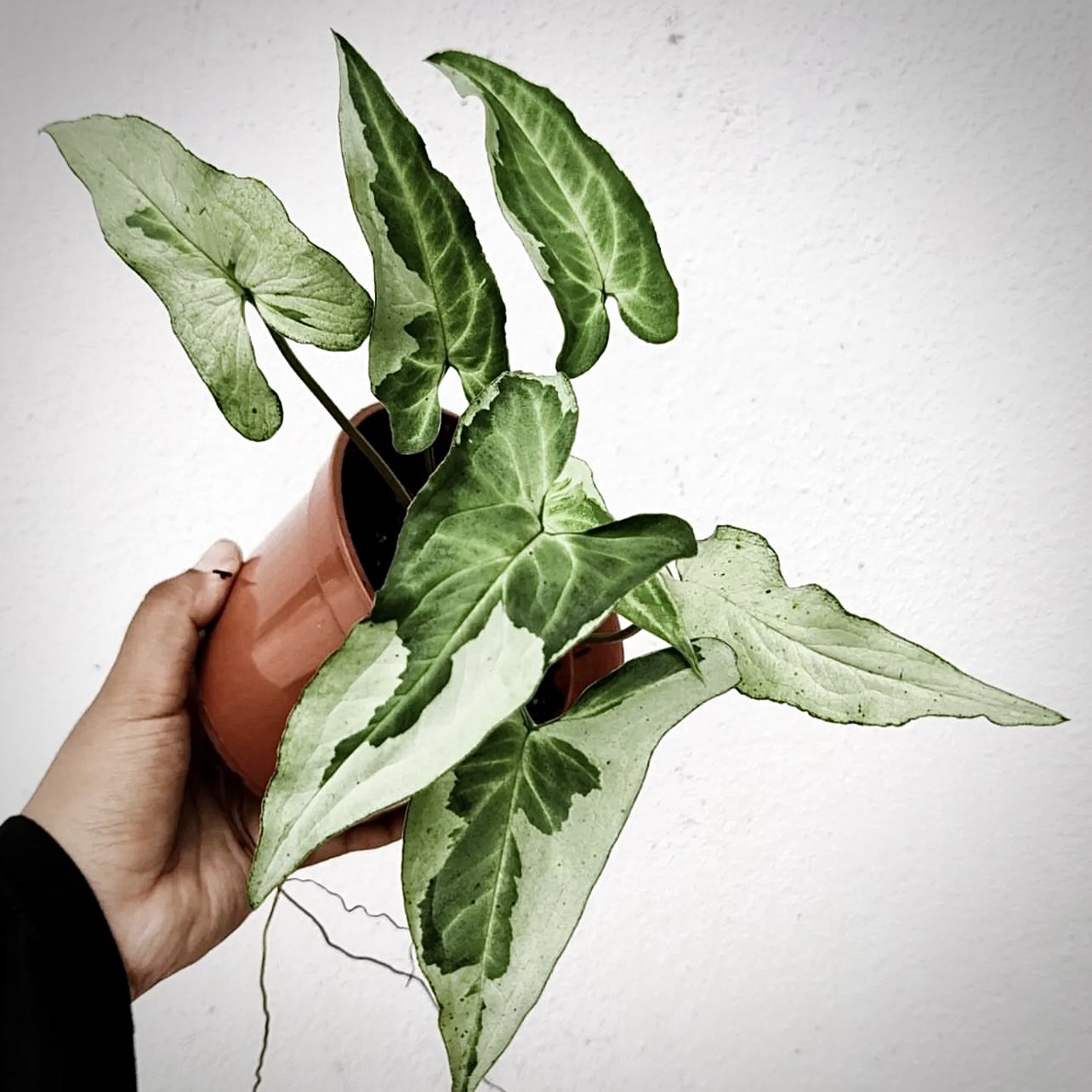
Origin and Features
The Syngonium Three Kings is a hybrid variety developed by crossing different syngonium species.
Unique Multicolored Leaves
The most striking feature of the Three Kings syngonium is its leaves which showcase a beautiful and unusual tri-color pattern in shades of green, pink and white. Each leaf has splashes and spots spread throughout, making every single leaf look different.
Compact Growth Habit
Unlike some other syngoniums which can vine extensively, the Three Kings grows in a more compact, bushy manner. It grows upright at first, then later will trail as it matures. But it stays quite manageable compared to faster growing varieties.
Growing Conditions
Syngonium Three Kings thrives under some basic care conditions.
“For a deeper understanding of the ideal growing conditions for your Syngonium, explore our comprehensive Syngonium Care guide.”
Light Requirements
The Three Kings syngonium does well in bright, indirect light inside the home. Place it near a bright window where it will get good light exposure but won’t get direct sun which can burn the leaves.
Watering and Soil
This variety likes consistently moist (but not soaked) soil. Water thoroughly whenever the top inch or so of soil feels dry. Use a well-draining potting mix and pot with drainage holes.
Temperature and Humidity
Warm room temperatures between 60-80°F suit it well. Average home humidity is fine, but higher humidity will support maximum growth.
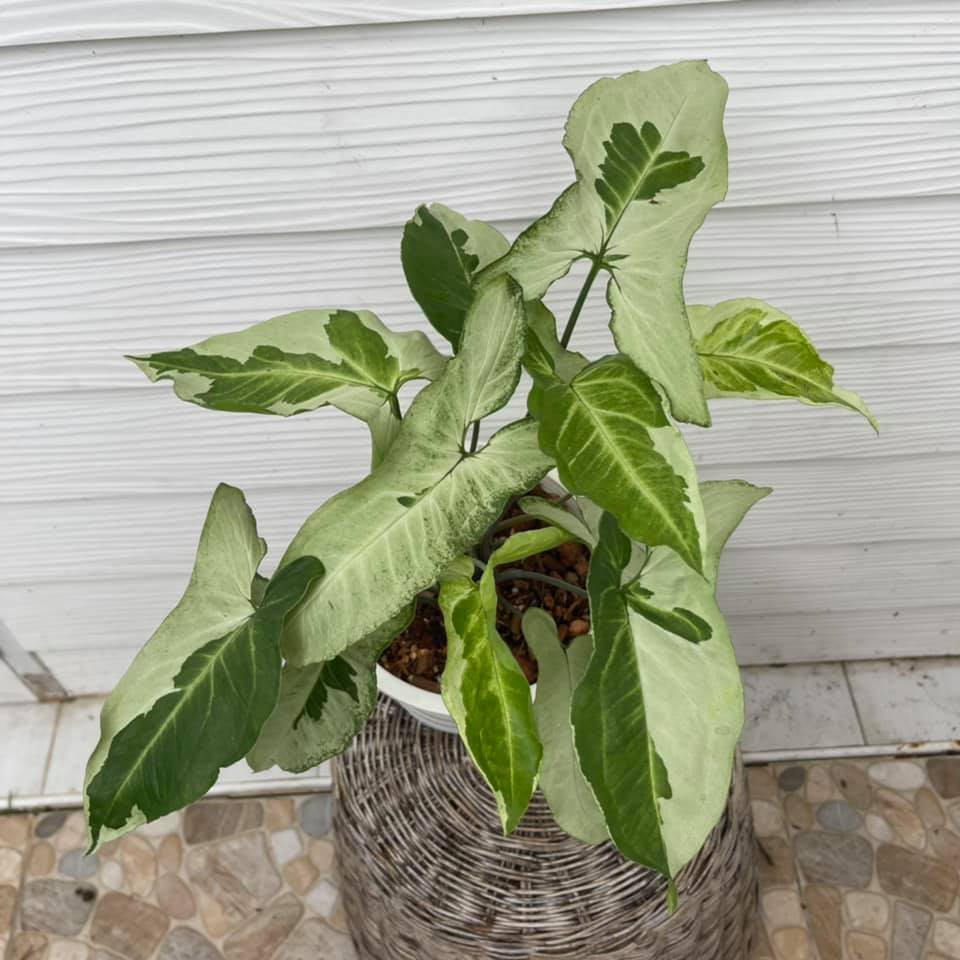
“Discover the elegance of nature with the Syngonium Three Kings! Click the link now to bring this stunning plant into your home.”
Tips for Care
Follow these tips as you care for your Syngonium Three Kings.
Fertilizer
Apply a balanced liquid fertilizer every 2-4 weeks during the growing period (spring through summer) to nourish your plant.
Support Stems
Add a stake or trellis for support if stems become leggy or unstable. The Three Kings has a bushy growth habit but may still benefit from some support.
Pinch Off Damaged Areas
Carefully pinch or trim off any damaged, yellowing, or unsightly areas on the leaves to keep your plant looking its best. New growth will hide any small unsightly spots over time.
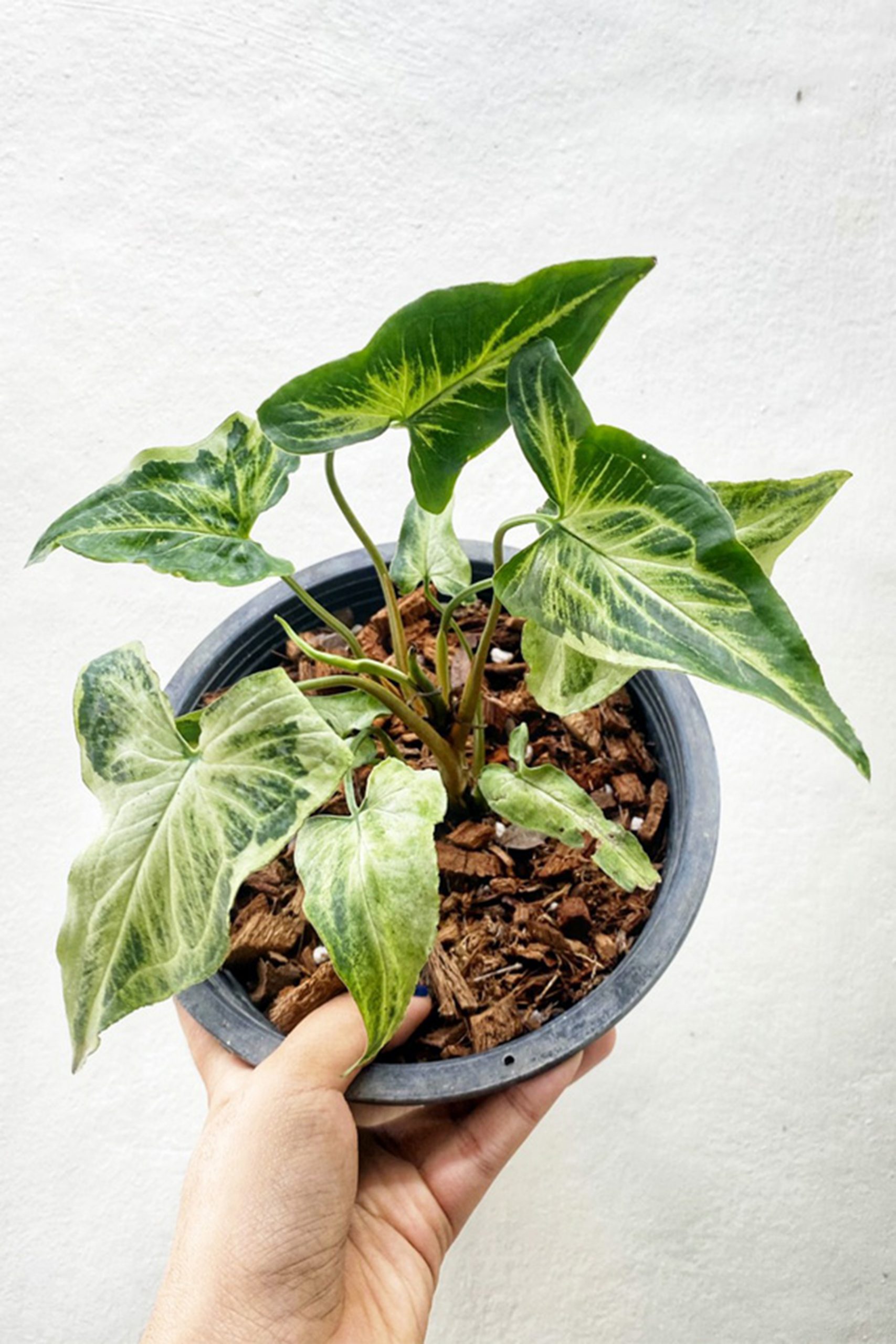
Where to buy Syngonium Three Kings? Benefits from importing plants from Thailand
- Shipping: Door to door shipping, fast and safe with Dragon Courier
- Biodiversity: Thailand is known for its rich biodiversity, including a wide variety of aroid species. This diversity allows importers to access a broad range of unique and exotic aroid plants.
- Quality and Health of Plants: The suitable climate helps the plants grown here stay healthy and of high quality.
- Cost-Effectiveness: Due to favorable growing conditions and efficient production methods, Thai aroid plants can often be more cost-effective compared to those from other countries.
- Access to Hybrid Varieties: Thai growers are often involved in the development of new hybrid aroid varieties, offering unique plants that may not be available from other sources.
Syngonium species are the most sought after by aroid plant lovers
Propagation
Propagating the Three Kings syngonium is quite straightforward.
Taking Plant Cuttings
Take stem tip cuttings that include a few leaves and node. Allow to dry briefly before planting.
Rooting Cuttings
Place cuttings in small pots with potting mix. Enclose in a plastic bag or cloche to maintain high humidity as they root. New plants will grow in a few weeks.
Dividing Established Plants
More mature Three Kings can also be divided by carefully breaking the root ball into smaller sections, ensuring some roots and shoots are intact, and repotting divisions.
“Discover more about propagating your Syngonium effectively by visiting our detailed guide on Syngonium Propagation: Easy Steps to Multiply Your Syngonium.”
Common Issues
Syngonium Three Kings is quite resilient but can develop a few problems. “Learn more about addressing common issues with Syngoniums in our extensive Syngonium Overview.”
Leaf Spotting
Overwatering can lead to bacterial or fungal leaf spot diseases. Allow soil to dry between waterings.
Leggy Growth
Insufficient light causes weak, leggy growth. Move to a brighter location or add supplemental lighting.
Pest Infestations
Check regularly for common houseplant pests like spider mites, mealybugs or scales which can attack many syngonium varieties. Treat promptly if detected.
Conclusion
With its vibrant and unique coloration, the Syngonium Three Kings makes a fabulous addition to indoor plant collections. Caring for this easygoing syngonium variety is simple by providing good light, moisture and using good cultural practices. The Three Kings is sure to be a showstopper in any home or office environment.
FAQ
- What is Syngonium ‘Three Kings’?
- Syngonium ‘Three Kings’ is a tropical plant known for its unique variegated leaves, featuring splashes of white, green, and sometimes pink. It belongs to the Araceae family and is a popular choice for indoor plant enthusiasts.
- How do you care for a Syngonium ‘Three Kings’?
- To care for Syngonium ‘Three Kings’, provide it with bright, indirect light and water when the top inch of soil feels dry. It prefers high humidity and warm temperatures. Avoid direct sunlight, which can scorch the leaves.
- Can Syngonium ‘Three Kings’ purify air?
- Like many Syngoniums, ‘Three Kings’ is believed to have air-purifying qualities, removing certain toxins from the environment. However, this benefit should not be the sole reason for choosing this plant, as its effectiveness in a typical home environment is limited.
- Is Syngonium ‘Three Kings’ toxic to pets?
- Yes, Syngonium ‘Three Kings’, like other Syngonium species, is toxic to cats and dogs if ingested. It can cause oral irritation, pain and swelling of mouth, tongue, and lips, excessive drooling, vomiting, and difficulty swallowing.
- How fast does Syngonium ‘Three Kings’ grow?
- The growth rate of Syngonium ‘Three Kings’ is moderate to fast, depending on the care and environment provided. With optimal conditions, it can show significant growth during the growing season (spring and summer). Regular pruning helps maintain its shape and encourages fuller growth.

